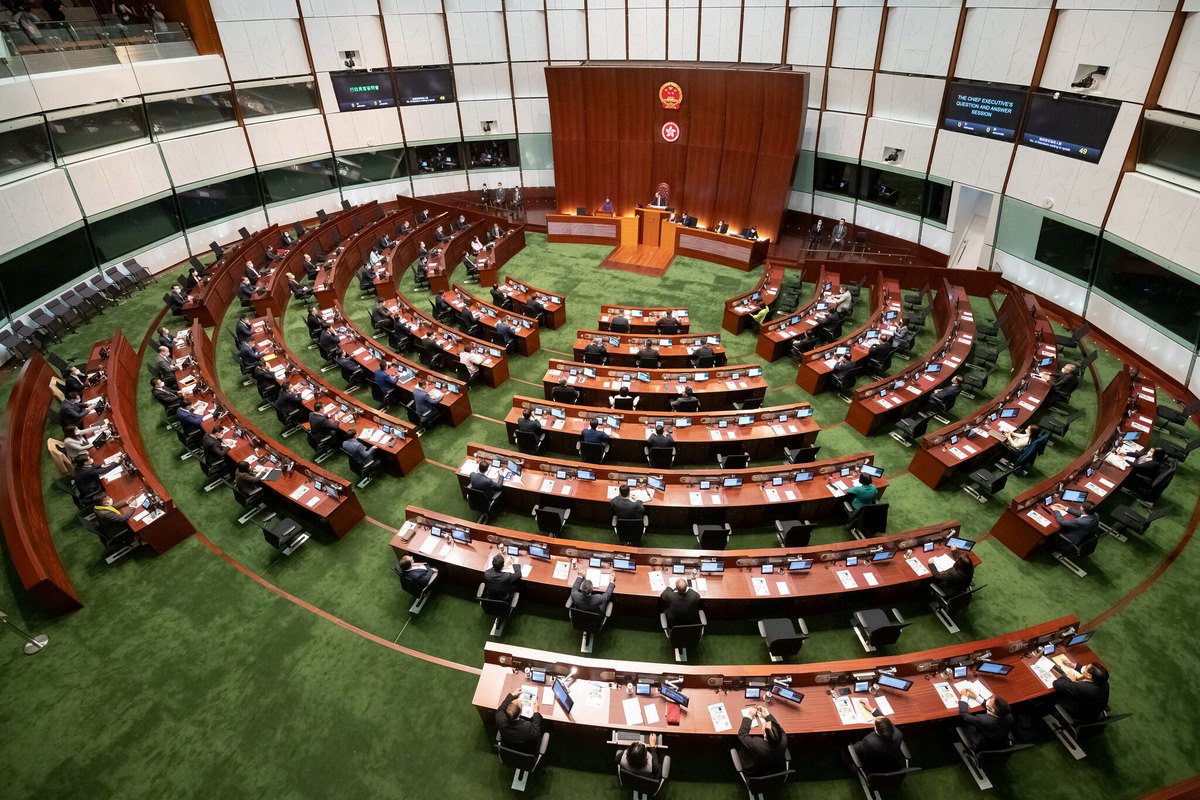As 2019 protesters get harsh penalties, the national security bill continues to be fast tracked
Some defendants are given seven years in prison over the storming of Hong Kong’s Legislative Council. Chief Executive John Lee wants the latter to approve by 31 March the legislation to implement Article 23 of Hong Kong’s constitution. The Diocese of Hong Kong issues a statement saying that the secrecy of confession will be upheld under the new law. By allowing police to detain a suspect for up to 16 days without charge, the bill is violating the right to legal counsel, raising concerns about abuses of basic rights.
Hong Kong (AsiaNews/Agencies) – A Hong Kong court today sentenced 12 people for rioting in connection with the storming of Hong Kong’s Legislative Council (LegCo) in July 2019 in what was one of the most sensational and discussed acts during that year’s protest movement.
The harsh sentences, up to seven years in some cases, were pronounced while the LegCo is debating a law implementing Article 23, the local version of China’s national security law, to further crack down on the pro-democracy movement in the former British colony.
Those sentenced today by District Court Judge Li Chi-ho include Gregory Wong, an actor, and Ventus Lau and Owen Chow, well-known pro-democracy activists.
On 1 July 2019, hundreds of protesters stormed the LegCo complex, spraying slogans on the walls and bringing supplies into the legislative chamber. Some furniture was broken and the pictures of political leaders hanging on the walls were destroyed.
The damages aside, for Judge Li, the incident has had long-term effects, “challenging the Hong Kong government and even weakening its governance”.
His decision is fully consistent with the spirit of the new law that Hong Kong Chief Executive John Lee wants to see in force as soon as possible, in accordance with Beijing's wishes.
Tabled on 8 March, the bill has already passed first reading without any opposition. The LegCo exceptionally met during last weekend.
The amendments to the draft law that were approved make it even tougher; for example, the passport of people accused of sedition who fled abroad can be revoked immediately rather than after nine months.
As it is being drafted, the bill would impose harsh penalties, including life in prison for treason, insurrection, or any threat to China’s sovereignty; it would also allow police to detain without charge a suspect for 14 days in addition to the current 48 hours.
One of the issues that raises the most concern is the criminalisation of the failure to report threats to state security, which could, if adopted, carry a maximum 14-year sentence.
The bill has met with concern for its impact on religious practice, for example, on the secrecy of confession for Catholics.
In view of this, the Diocese of Hong Kong issued a press release yesterday, saying that while recognising that every citizen “has obligation to national security [. . .]. The legislation of Article 23 will not alter the confidential nature of Confession (Sacrament of Reconciliation) of the Church.”
On Thursday, the issue was raised as well in the LegCo by Rev Peter Koon, a pro-Beijing member from the Anglican Church of Hong Kong, who asked if exemptions would be granted to the clergy.
Secretary for Justice Paul Lam responded by saying the scope of the treason offence was “clear and targeted.” The chances of finding oneself in an “extreme circumstance,” like hearing about a plan to start war, was rather low, the minister said.
“Whether it is religious workers or social workers, they would have some discussion. It is very hard for us to offer exemptions,” Lam added. “Treason is a very serious matter. I think if national security is at stake, I think a balance should be struck to fulfil the duties of allegiance.”
Meanwhile, the government continues to press for a quick approval. To this end, the LegCo agreed to waive the usual ten-day waiting period before starting second and third readings.
Fast-tracked, the bill could be promulgated by as early as 31 March, ending the freedoms that the One Country, Two Systems principle was supposed to protect in Hong Kong.
21/03/2024 19:32
19/06/2020 15:09
02/07/2020 10:09







.png)










